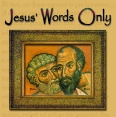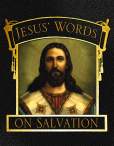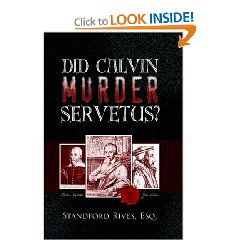Biography
Galileo Galilei (1564-1646), born in Pisa, Italy, was a physicist, astronomer and philosopher. He personally favored the view of the Polish attorney and amateur astronomer, Nicholas Copernicus, who believed in heliocentricity -- the sun was at the center of our 'world' (solar system)."It can be said of few people that they changed the world. This statement is true of Galileo Galilei."[1]
Galileo, Dialogue Concerning the Two Chief World Systems (1632)
Synopsis
Thus, on the face of this work, the church should not have been upset with Galileo. He appeared to call Copernicus's ideas a theory, and an unreal chimera. Yet, it appears the pope's feelings were hurt at being made to look foolish in an earlier portion of the book, as we discuss next, which led the Catholic Church to turn against Galileo.
Galileo's Letter of 1615 on Scripture Interpretation
Publication Path of Dialogue of 1632
Galileo in 1611 went to Rome and befriended Cardinal Barberini. In 1620, Barberini dedicated a book of poetry to Galileo. Barberini later became Pope Urban in 1623. (Richard Olson, Science and religion, 1450-1900: from Copernicus to Darwin (JHU Press, 2006) at 17.) Matteo Barberini had "long been an admirer of Galileo's work." (A. C. Grayling, Descartes: the life of René Descartes and its place in his times (Simon and Schuster, 2006) at 168.) Six weeks prior to becoming pope, Barberini thanked Galileo for bestowing a doctorate on his nephew and praised Galileo in general:I remain much obliged to your Lordship for your continued affection towards me and mine....[Y]ou will find in me a very ready disposition to serve you out of respect for what you so merit and for the gratitude I owe you. (David C. Lindberg, Ronald L. Numbers, When science & Christianity meet (University of Chicago Press, 2003) at 50.)Galileo likely believed his friend becoming pope was a sign of divine providence to finally be able to present the Copernican theory which he had been silent about after 1616 when he tangled with the Inquisition.
Now with the hope that the pope and his friend would sanction his work, Galileo met with MatteoBarberini -- now called Pope Urban. Galileo had six papal audiences with him, and worked out the presentation of heliocentricity in a book which they agreed would be in the form of a dialogue. Then Galileo wrote this book from 1624-1629. There is even evidence that Barberini, Pope Urban, even suggested the final title of theDialogue. (Richard Olson, Science and religion, 1450-1900: from Copernicus to Darwin (JHU Press, 2006) at17.)
Galileo then went to Rome in 1629 to obtain approval from his old friend, now pope Urban. After meeting with Urban, he saw no obstacle to publication as long as he kept the dialogue in the form of hypotheses. (Olson: 17.) Galileo wrote his publisher Cesis that the pope told him the church would never ban discussion of the Copernican hypothesis because it could never be proven as necessarily true. (Olson: 17.) Thus, Galileo believed as long as he kept the discussion to a series of pros and cons, he could never run afoul of Urban's instructions. (Lindberg: 51.)
The pope's actual view was that the "literal" truth of scripture could always be true that the earth does not move because despite the "effects" we see which lead us to a conclusion otherwise, God can always make things differently than we suppose. (David C. Lindberg, Ronald L. Numbers, When science & Christianity meet(University of Chicago Press, 2003) at 51.) It does appear Galileo very fairly included this view in the voice of Simplicio. He says one cannot limit the "divine power and wisdom" to follow the fancy of theories. Id., at 52.
Then Cesi, Galileo's publisher died. Galileo turned to another publisher at Florence where indeed it was published. (Cropper, id., at 11.) Approval of the church came two years later when the Roman Inquisitor included a preface to the Dialogue. People liked the Dialogue's format, and found it entertaining. (Cropper, id., at 11.)
However, in 1632, Galileo's publisher was ordered to cease publication. Urban was upset that the arguments against Copernicus by Simplicio were feeble. The pope engaged his nephew to review the book. Then on that committee's recommendation, after finding an injunction (unsigned) from 1616, the matter was handed over to the Inquisition. (Cropper, id., at 11-12.) However, several on the committee, including the pope's nephew, felt that Galileo's evidence of innocence was stronger, and the Inquisition should find him only guilty of poor judgment. (Richard Olson, Science and religion, 1450-1900: from Copernicus to Darwin (JHU Press, 2006) at 18.)
Trial of Galileo
Galileo's trial began on April 12, 1633. The Inquisitor focused upon the injunction by Bellarmine in 1616 which had been given to Galileo rather than the approvals the pope gave in 1623-1629 or the Inquisition approval of 1631 (where the Inquisitor put in the Preface). Galileo responded that the injunction of 1616 did not bar the discussion of the issue of Copernicus' theory, as the Inquisition contended. Rather, it said that the position that the earth moves could neither be held nor defended. (Cropper, id., at 12.) Galileo offered a letter from Bellarmine to prove the strict interpretation of the Inquisition was incorrect. (Id.) It said that the theories of Copernicus "could be made use of" as long as not presented as fact. (Robin Santos Doak, Galileo: astronomer and physicist (Compass Point Books, 2005) at 78.)Incidentally, the 1616 injunction was never signed nor witnessed, and hence was not legally effective.
The Inquisition pulled out notes of Bellarmine from the first conversation with Galileo in 1616. These purported to show Bellarmine told Galileo to never discuss, write about or defend Copernicus again. (Robin Santos Doak, Galileo: astronomer and physicist (Compass Point Books, 2005) at 76.) Galileo said he had "no memory of it as it was so many years ago." (Robin Santos Doak, Galileo: astronomer and physicist (Compass Point Books, 2005) at 78.) Galileo insisted that the strict terms of the final injunction were more important, and they did not contain what the handwritten notes of Bellarmine from their first conversation purported to advise.
The Inquisition was not willing to accept an acquittal. The judge met privately with Galileo and offered him mercy if he pled guilty. (Doak:78.) As Cropper explains it:
They offered what appeared a reasonable settlement: Galileo would admit wrongdoing, submit a defense, and receive a light sentence. Galileo agreed and complied. But when the sentence came on June 22 it was far harsher than anything he expected: his book was to be placed on the Index of Prohibited Books, and he was condemned to life imprisonment. (Cropper, id. at 12.)It should also be realized Galileo was not given much of a choice. After this private meeting when Galileo had not yet taken the plea, Pope Urban himself ordered a fourth session under threat of torture. The "Catholic Dictionary" concedes that prior to his plea Galileo was indeed "threatened" with torture if he did not recant. (William Edward Addis, ed., A Catholic Dictionary (1893) at 398.)
Galileo then denied again that he wrote the book with any bad intentions. (Doak:78.) The pope was insistent that Galileo be examined whether he intended to prove the Copernican theory rather than present it as theory. (Olson: 18.) Some believe Pope Urban was engaged in a personal vendetta at this juncture because of Galileo's book lacking a balance in presentation, making the Pope's geocentric views appear weak. (Olson:18.) As a result of the threat of torture, Galileo was compelled to sign a statement "I Galileo...abandon completely the false opinion that the sun is at the center of the world and does not move and the earth is not the center of the world and moves...." (Doak: 79.)
On June 22, 1633, the verdict held that Galileo was "vehemently suspected of heresy." (Doak:78.) All his writings regardless of the topic were ordered never to be printed again. All copies of the Dialogue were ordered burned. His confession on threat of torture renouncing the Copernican view was ordered published and read in every university. (Doak: 81.)
Yet, the fraud on Galileo was still no less unjust if it was caused by the hard-hearted Pope.
Thereafter, the friends of Galileo howled. The church bent and allowed him to live under a sort of house arrest at the home of the Archbishop of Siena.
Incidentally, what Galileo actually said about the tides was that the only explanation of the tides was to envision them as the sloshing of water in the great sea basins owing to the double motion of earth --- annually about the sun and daily upon its axis. (Lindberg: 52.)
D'Souza also says that Galileo's additional "mistake" was not "confined to scientific issues," and instead "he also advanced his own theory of scriptural interpretation." (Id.) Why is that mistake? He says because the "Jesuits warned him not to venture in this territory." (Id.) D'Souza shockingly then accuses Galileo of "hubris and impudence" for thinking he could interpret scripture. It is amazing that Christians can still attack Galileo for following the precedent of the Reformers of the Reformation who likewise supposedly with impudence claimed they could reject the pope's counsel.
D'Souza accuses Galileo of having promised never to teach heliocentricity, and that it was the breaking of this promise in this book which angered the church. (Id. at 109.) This is false.
D'Souza also claims without footnote that Galileo said:
I have neither maintained or defended in that book the opinion that the earth moves and that the sun is stationary but have rather demonstrated the opposite of the Copernican opinion and shown the arguments of Copernicus are weak and not conclusive. (Id., at 109, without citation).
However, what D'Souza attributes to Galileo merely says that the format of a dialogue did not break the terms of the injunction of 1616. It defended all points of view. It did not have a single voice that affirmed which view was correct. Hence, if Galileo made this statement, Galileo was correct that he did not technically violate the supposed injunction. There was no lie, let alone a flagrant lie, contrary to d'Souza's claim.
Further, if Galileo made this statement, it was true. On day four, the person identified with Galileo in the dialogue disclaims any belief in heliocentrism. The Galileo-like figure says heliocentrism is a chimera and a paradox. Galileo did not lie to the Inquisition, and it is unfair to say he did. Perhaps he was clever -- using a dialogue to present an argument (encouraged by the pope beforehand as the method of discussion), but Galileo was truthful at the same time to the Inquisition.
D'Souza further claims contrary to "atheist propaganda" that Galileo was "never accused of heresy...." (Id. at 110).
This is false and sophistry. Perhaps technically the charge was violating an unsigned unissued injunction. However, that injunction was premised on a finding that teaching heliocentricity was heresy. Thus, Galileo was effectively charged with heresy. Furthermore, the verdict was based upon heresy. On June 22, 1633, the verdict held that Galileo was "vehemently suspected of heresy." (Doak:78.)
References
- George Walsh, 50 Plus One Great Books You Should Have Read: And Probably Didn't (2006) at 114.
- Robin Santos Doak, Galileo: astronomer and physicist (Compass Point Books, 2005) at 73.
- William H. Cropper, Great physicists: the life and times of leading physicists from Galileo to Hawking ( Oxford University Press US, 2004) at 239



